Arnold Palmer: How golfer defined sports marketing
- Published
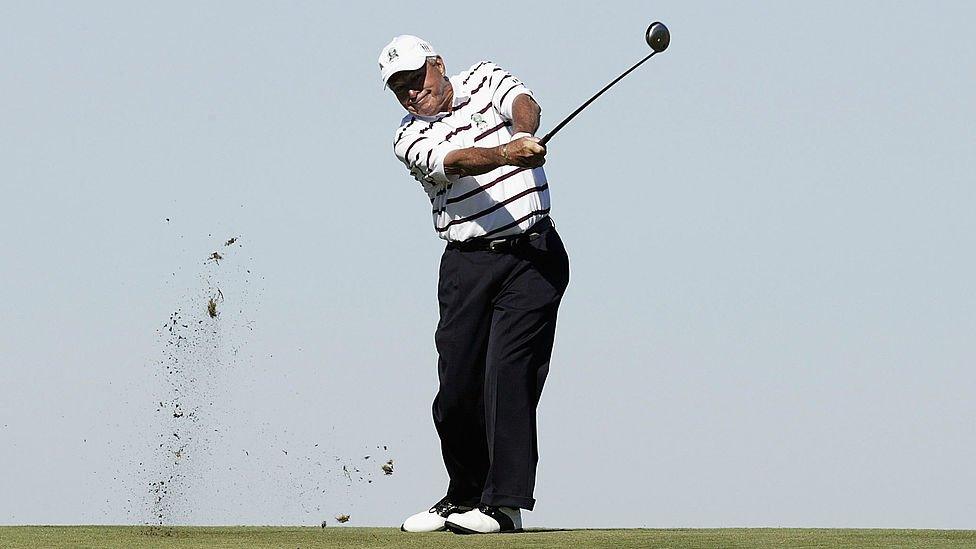
Arnold Palmer was the first golf player to make $1m from playing the sport.
The passing of famous golfer Arnold Palmer has reminded the world of a true trailblazer in sports business.
Palmer, who has died at the age of 87, was the first sportsman to use his fame to build a business empire, through an array of commercial ventures.
He put his name to products and services, including United Airlines, Cadillac cars, Rolex watches, Hertz car rental and Callaway golfing products.
The effects of his vision spilled over into other sports including tennis.
"He had the good looks, and affable persona and smile, as well as golfing ability, to become the template for what every successful sports endorser should be," says sports sponsorship expert Nigel Currie.
"He had all the attributes you need to maximise your earnings through commercial activities.
"Before then sportsmen made all their money from hitting a ball in a sporting arena."
Indeed, the man nicknamed The King, was the first golf player to make $1m from playing the sport.
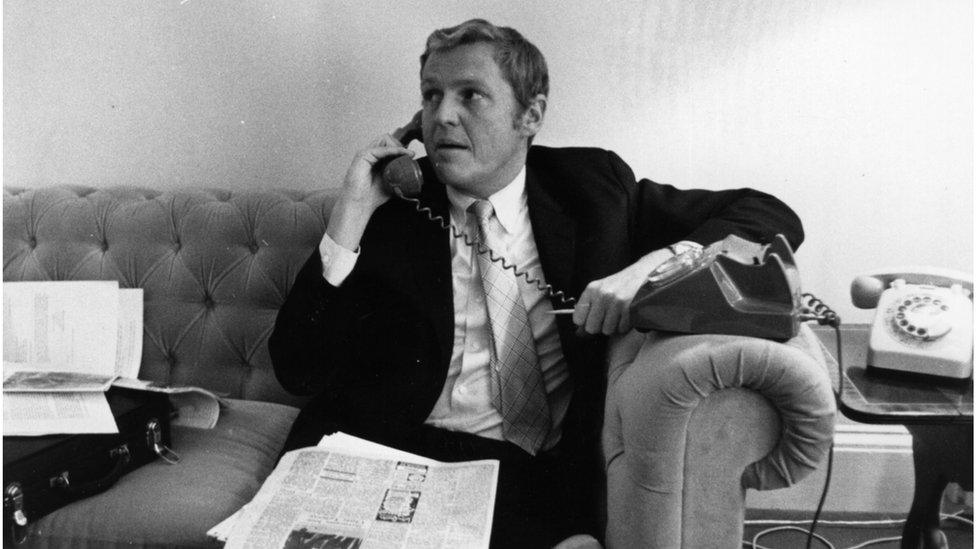
IMG founder Mark McCormack took on Arnold Palmer in 1960
He was Mark McCormack's - the undisputed king of sports marketing - first client at agency IMG, and together they invented a way of making more money off the golf course than on it.
In the first two years of his agreement with Mr McCormack, the golfer's endorsement earnings leapt from $6,000 a year to more than $500,000.
Palmer put his name to a variety of products and services, including United Airlines, Cadillac cars, Rolex watches, Hertz car rental, Pennzoil engine fluid, Callaway golfing products and E-Z-Go golf carts.
And he founded Arnold Palmer Enterprises to handle his endorsements and other ventures.
"Palmer was such a huge golfing icon in America, he was hugely popular with the public, and he and McCormack were able to make money from using his personality in conjunction with different brands," says Mr Currie.
"And it was not just endorsements during his playing career, nor indeed just golf brands.
"He also made a huge amount of money after he stopped playing."
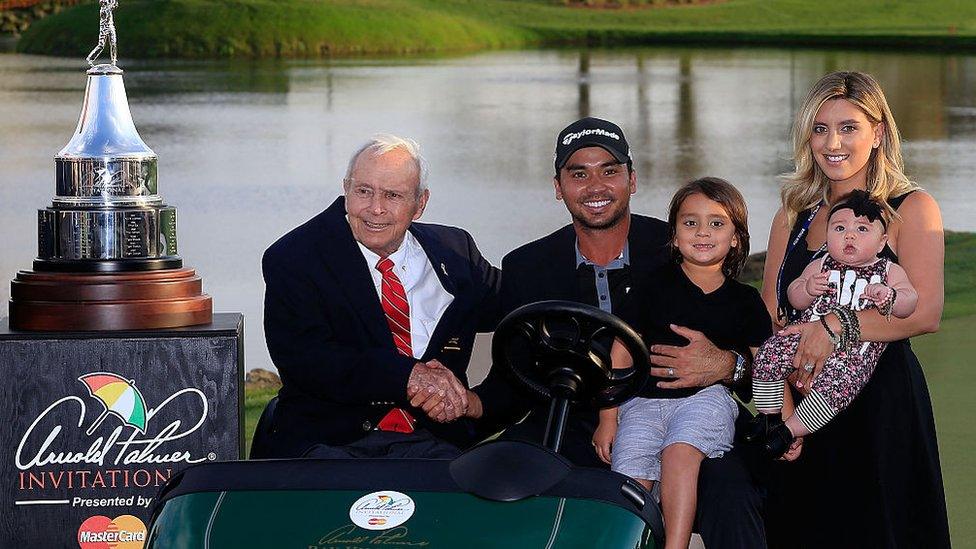
The Arnold Palmer Invitational is held each March at Palmer's private golf resort in Bay Hill, Florida.
The golfer was loved as an everyman superstar, and even had a drink named after him - the Arnold Palmer cocktail, made from one part iced tea and one part lemonade.
He also gave his name to a professional tournament - The Arnold Palmer Invitational, held each March at his private golf resort in Bay Hill, Florida.
He also leaves behind nearly 300 signature-designed courses.
"Whether he was able to physically oversee and have total control over the development of all of these courses is arguable," says Mr Currie.
"But he will have worked with top people in bringing them to fruition, and certainly will have had a huge involvement in each design."
As well as endorsements and course designs, Palmer is also credited with helping to make golf a popular TV sport during the late 1950s.
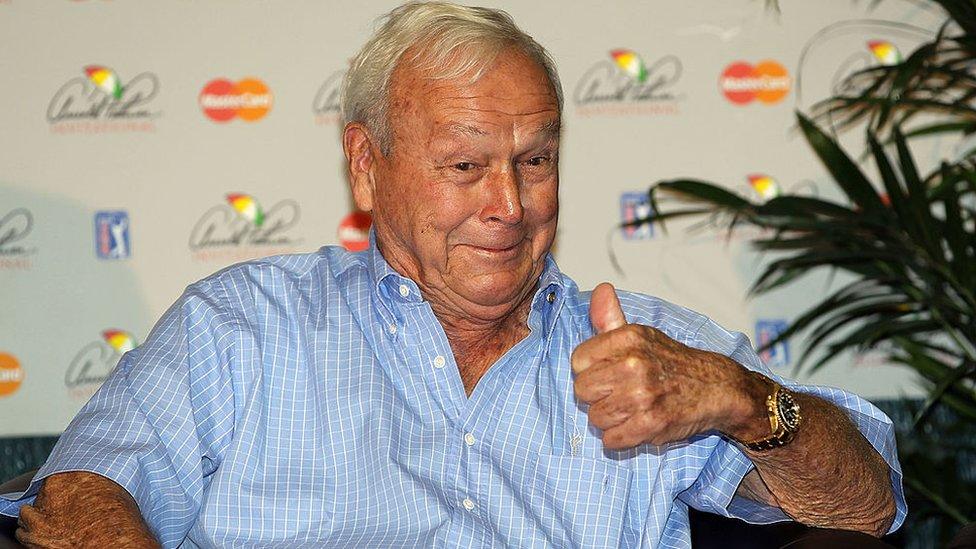
Palmer attracted thousands of diehard fans known as "Arnie's army" and helped to promote the game into the television age.
Mr Currie says that the power of Palmer's personality in securing such a powerful commercial position for himself should not be underrated, given that he was not the most global successful player ever.
"Jack Nicklaus was the more successful player, and won more titles," he says.
Nicklaus won 18 majors, and Tiger Woods has won 14, while Palmer secured an impressive seven majors between 1958 and 1964, as part of his overall haul of 90 tournaments worldwide.
"Palmer had a short career at the very top, and did not win a major title after the early 1960s."
But he had shown he was already thinking ahead to a career off the course, shrewdly signing that IMG deal with McCormack as early as 1960.
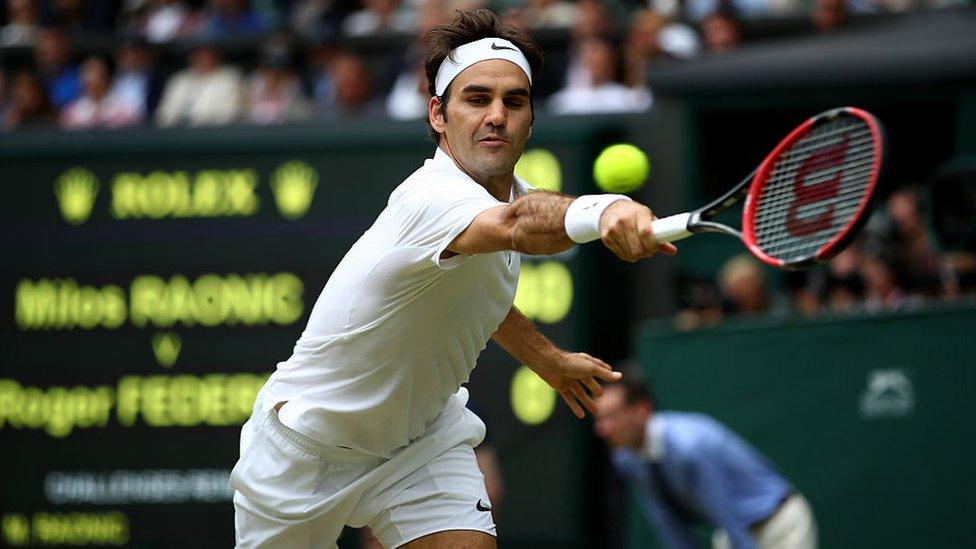
Sports stars such as Roger Federer have benefitted from the trail set by Arnold Palmer
Nowadays it is commonplace for sports stars to put their names to commercial products.
But half a century ago such as association between sport and brands was unheard of.
Palmer has left a legacy for which today's high earning stars, earning astronomical sums from their own deals, should be eternally grateful.
The likes of Tiger Woods, who signed lucrative deals with global firms such as Nike, American Express and GM, Nick Faldo and Greg Norman, who launched a number of commercial ventures, from sports clothing to wines, as well as tennis stars such as Roger Federer and Maria Sharapova all followed in the path created by Palmer.
"He was the prototype for all of today's high earning sports men and women, and one of the few people you can truly say changed the world of sports business," says Mr Currie.
"As well as being as a highly significant business figure, he was also an American and golfing icon."
- Published26 September 2016
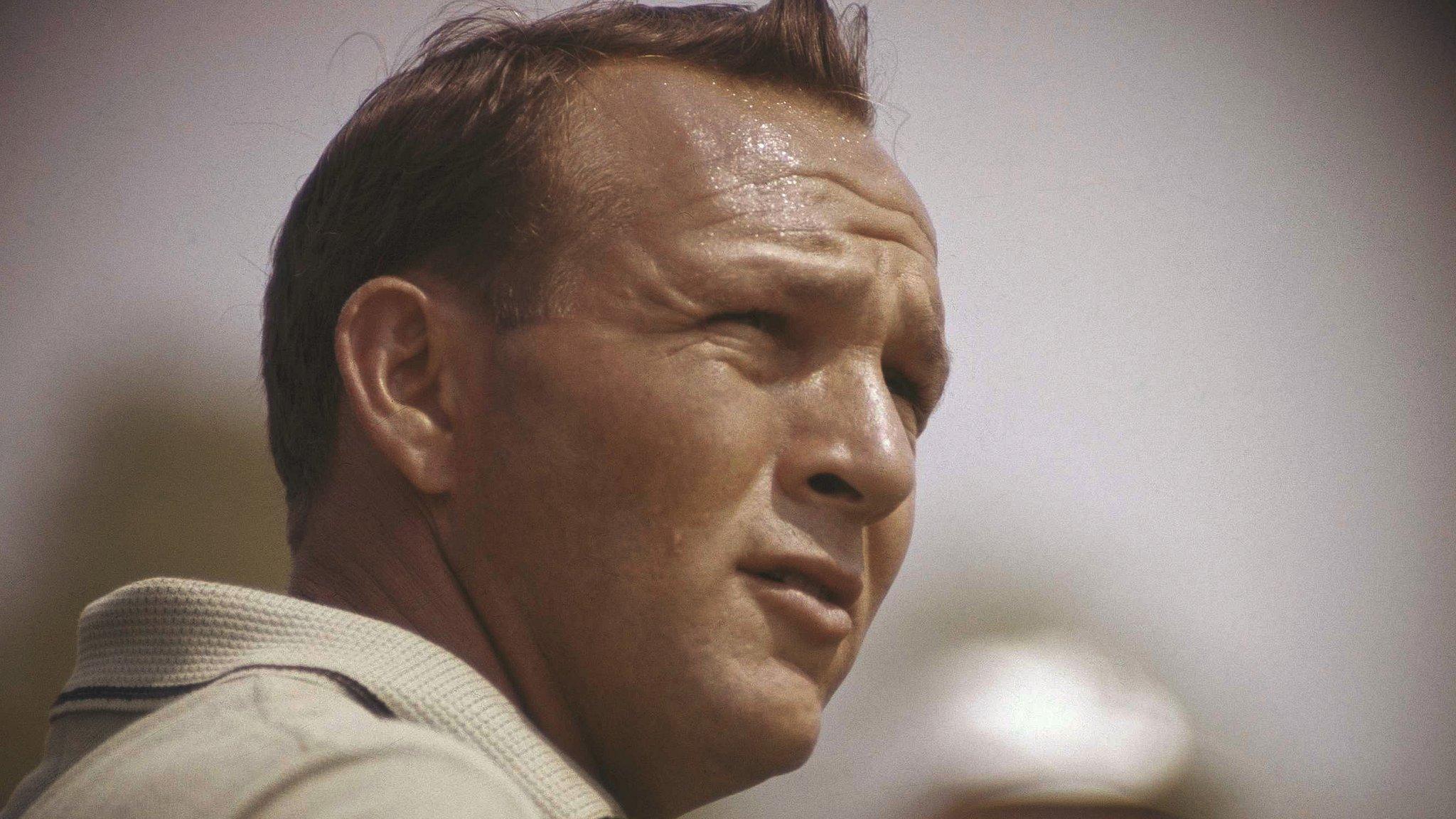
- Published26 September 2016
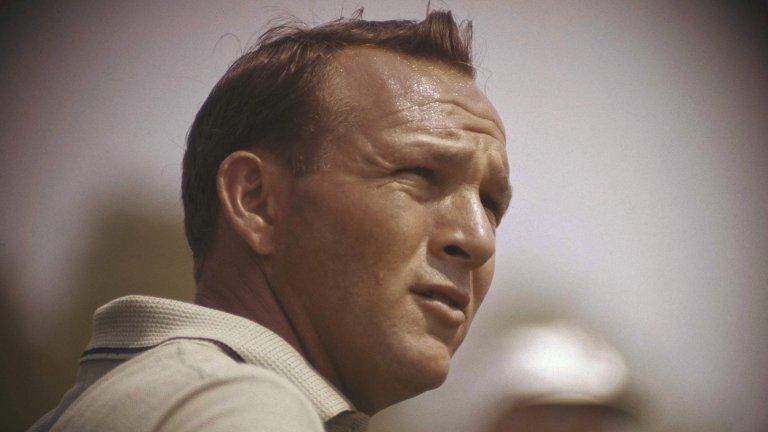
- Attribution
- Published26 September 2016